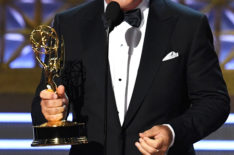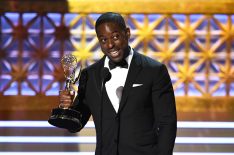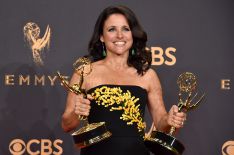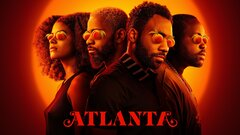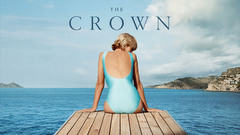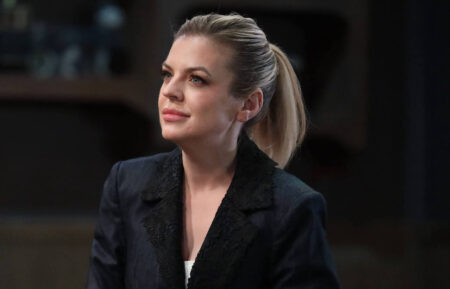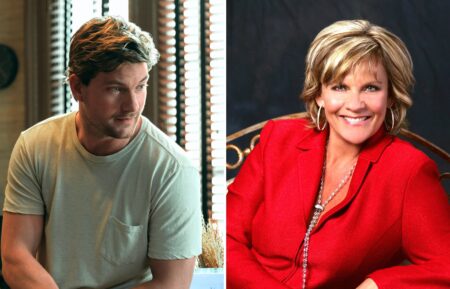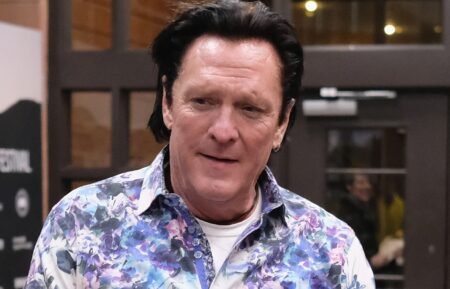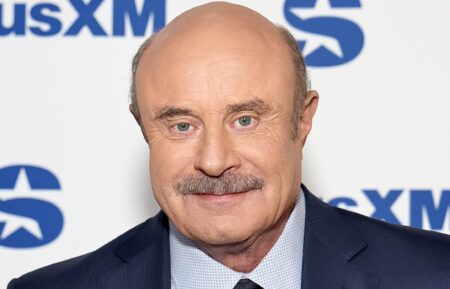Critic’s Notebook: The Emmys – A Night of Sweeps Amid Political Barbs
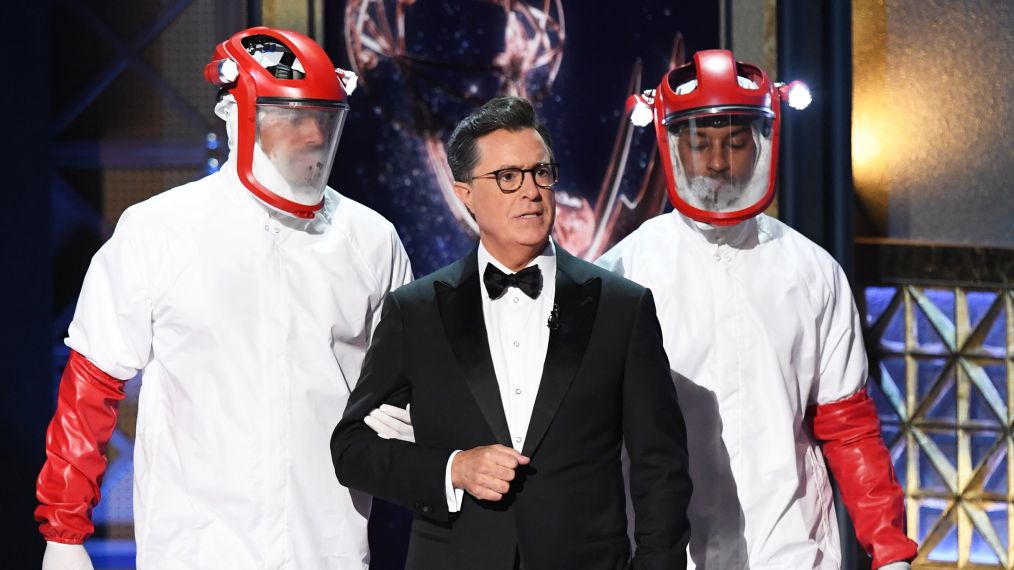
With big wins for Hulu (The Handmaid’s Tale) and Netflix (Black Mirror, The Crown), this year’s Emmy show was a breakthrough for streaming services. In most other regards, the glittery ceremony refuted host Stephen Colbert’s opening song-and-dance refrain that “Everything is better on TV.” When it comes to TV awards shows, not so much.
The moments of surprise were few, peaking early with the appearance of former White House press secretary Sean Spicer at a podium, upstaging Colbert’s monologue to the gobsmacked delight of the audience—including Melissa McCarthy, who had won an Emmy a week earlier for spoofing Spicer as a guest performer on Saturday Night Live.
The stunt was indicative of the Emmy night as a whole in several ways, most especially when it came to the expected bounty of president-bashing, starting with his lack of winning at previous Emmys—”In a way, this is all your fault,” Colbert quipped—to swipes during many an acceptance speech. A sampling: John Lithgow, winning as Winston Churchill in Netflix’s The Crown, cited the British prime minister as a reminder of “what courage and leadership in government really looks like.” Or Julia Louis-Dreyfus taking her record sixth consecutive Veep trophy and joking, “We did have a whole storyline about an impeachment, but we abandoned that because we were worried that someone else might get to it first.”
The apex may have been the 9 to 5 reunion of legendary presenters Lily Tomlin, Dolly Parton and Jane Fonda (the trio earning one of the night’s several standing ovations), saying that much like their boss in the classic comedy movie, “We still refuse to be controlled by a sexist, egotistical, lying, hypocritical bigot.” Dolly tried to lighten the mood with some boob jokes, but the point had been made.
The Spicer-Melissa McCarthy moment was also an early herald of a Saturday Night Live sweep that included a repeat win for Kate McKinnon and for Alec Baldwin as TV’s pre-eminent presidential impersonator. (“I suppose I should say at long last, Mr. President, this is your Emmy,” Baldwin cracked.) SNL also collected a directing prize and the top honor of variety-sketch series.
SNL was hardly the only show to make several repeat visits to the winner’s circle. It became clear early on that HBO’s Big Little Lies and Hulu’s The Handmaid’s Tale were going to nearly sweep the limited-series and drama fields. Deservedly so, especially when it comes to the gripping dark allegory of Handmaid and the performances of long-overdue Elisabeth Moss and Ann Dowd, but it sapped some of the suspense out of the long evening.
In a year with so many terrific first-year nominees, among the most satisfying wins reflected TV’s diversity: Donald Glover’s double win as director and star of FX’s Atlanta (which should have won for comedy series), Sterling K. Brown for This Is Us (also winner of the night’s most shameful orchestral play-off), and a rousing ovation greeting Lena Waithe as the first African-American woman to win a writing award, with Aziz Ansari, for the marvelous “Thanksgiving” episode of Netflix’s Master of None.
Colbert was a genial and game host, at his best when pretending to drown his sorrows with follow variety-talk also-ran Jimmy Kimmel, sipping a cocktail they dubbed “Last Week Tonight” (after HBO’s John Oliver show predictably racked up its second win). “It’s so high quality, apparently they can only make one a week,” Colbert snarked, to which Kimmel added, “Mine has extra bitters in it.”
By the time the Emmys were rushing through the final, and biggest, awards—maybe they could have cut the Westworld parody?—the audience at home and in the Microsoft Theater no doubt could have used a drink themselves. Save the bitters for Washington.

